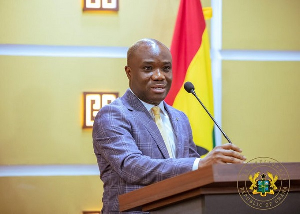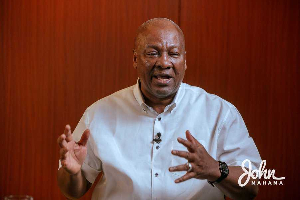Accra, July 28, GNA - Mr. Sam Okudzeto, a barrister at law, said in Accra on Tuesday that it was wrong for anyone to prevent women from endorsing bail bonds. He said no surety should be discriminated against on the grounds of gender, race, colour, ethnic origin, religion, creed, social or economic status.
Mr Okudzeto was speaking at a human rights awareness forum, organised by the Commonwealth Human Right Initiative (CHRI) said any body who had the view that women had no right to bail was living in the era when property ownership was used as basis for security. The programme, which was on the theme: "The rights of Arrested Persons in Ghana," was sponsored by the Australian High Commission. CHRI is an international non-governmental organisation mandated to ensure the practical realisation of human rights across the Commonwealth. Its Africa office, situated in Ghana, was opened in 2001.
Mr. Okudzeto observed that currently, some women are richer than some men and are acquiring expensive property than their male counterparts.
He said a bail was the release of an arrested person on the condition that the person would appear before the court when required to do and abide by any restriction. He said bails were not favours and therefore it was unlawful for some one to give money to police officers as a way of paying for bail services.
The circumstances under which a court could refuse a bail were in the cases of treason, subversion, murder, robbery, hijacking, piracy, rape and defilement or escape from lawful custody. Mr. Okudzeto said a court would refuse to grant bail if it was satisfied that the defendant may not appear to stand trial, interfere with any evidence or hamper investigations or commit further offence when on bail.
He said many people were ignorant about their rights and issues of right abuse, explaining that unfortunately anyone who wanted to stand for his or her rights by challenging authorities that infringe on those rights were normally branded as "too known".
Mr. Paul Tawiah Quaye, Inspector General of Police (IGP) in a speech read on his behalf said arrested persons had a lot of rights. "The law confers a number of rights to any person who is arrested in connection with any alleged offence," he said. From the point of arrest, he said the arresting police officer was required to immediately inform the arrested person the cause for the arrest in a language to be understood and must not be detained for more than 48 hours if arrests were effected.
When unlawfully arrested, restricted or detained by any person including a police officer, the person shall be entitled to compensation from the other person, he said and added that such a person had the right to be treated with dignity and respect. "This requires that the police should not subject any person arrested detained or restricted to torture or other cruel, inhuman or degrading treatment" he explained.
The IGP said any person alleged to have committed any crime should be presumed innocent until the contrary was proven or had pleaded guilty. "He who alleges a crime against any individual person has the burden of proving the guilt of the person by producing the relevant probative evidence," he said.
General News of Tuesday, 28 July 2009
Source: GNA
















